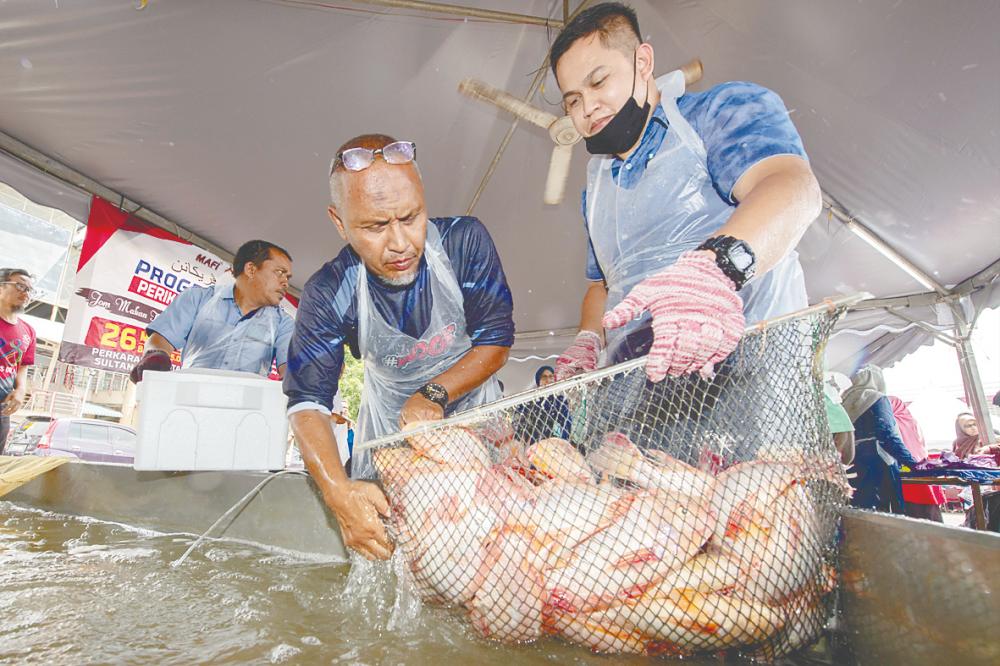PETALING JAYA: Food security has been a hot topic in the country for some time, with Deputy Agriculture and Food Security Minister Datuk Arthur Joseph Kurup saying Malaysia aims to achieve 40% aquaculture production by 2030 to meet its fisheries needs.
Aquaculture accounts for just 30% of the nation’s total fisheries production, with Malaysians consuming 45kg of fish and fishery products per capita last year.
“The fisheries sector is crucial for Malaysia’s food security, socioeconomic development, and cultural and environmental protection,” he said.
Universiti Malaysia Terengganu Institute of Climate Adaptation and Marine Biotechnology director Prof Dr Yeong Yik Sung said integrated farming, in which fish are farmed in the same land area as rice, could boost Malaysia’s food security.
“Such a method is considered a nature-based solution in aquaculture, focusing on protecting, restoring and sustainably managing aquatic ecosystems.
“It not only increases income for rice farmers but also promotes the growth of aquaculture in Malaysia.”
Yeong said the method promotes efficient use of freshwater and aids in pest control since rice plants and fish share the same water source.
“Some fish species help control pests in rice fields by eating insects and weeds, reducing the need for pesticides and herbicides.”
Universiti Putra Malaysia fisheries biology lecturer Prof Dr Aziz Arshad said Malaysia has potential in adopting integrated farming as the country has a large rice-growing area in Peninsular Malaysia, although several issues need to be addressed.
“The use of artificial fertilisers and pesticides must be stopped, and rice plots need to be modified to include fish subzones and proper planting distances.
Aziz said relevant agencies should be roped in to kick off pilot projects to demonstrate the system’s potential, adding that such projects could encourage the government to invest in developing an eco-friendly farming approach.
“The integrated system boosts economic stability by providing additional income from fish sales. It also benefits the environment by improving soil fertility, strengthening soil ecosystems and minimising pest problems.”
Putra Business School lecturer and agricultural economics expert Prof Datuk Dr Mad Nasir Shamsudin said an integrated farming method could strengthen rural food security and reduce poverty.
“China, Vietnam and Bangladesh have implemented integrated rice-fish farming to boost rural food security and reduce poverty. In Africa, some countries have increased food availability and farm income.
“Farmers in Malaysia may face a high initial cost due to the need to modify rice fields to include trenches and dykes.
“They will also have to buy fish fry or fingerlings, feed, and other supplies, which could be difficult for small-scale farmers with limited funds.”
Mad Nasir said the government and private sector should support integrated farming to improve the economy, including through incentives, technical assistance and awareness campaigns.
“Collaborative research and farming methods, such as integrated pest management, could help farmers adapt and succeed. With the right support, integrated farming could become a sustainable and profitable solution for the country.”









